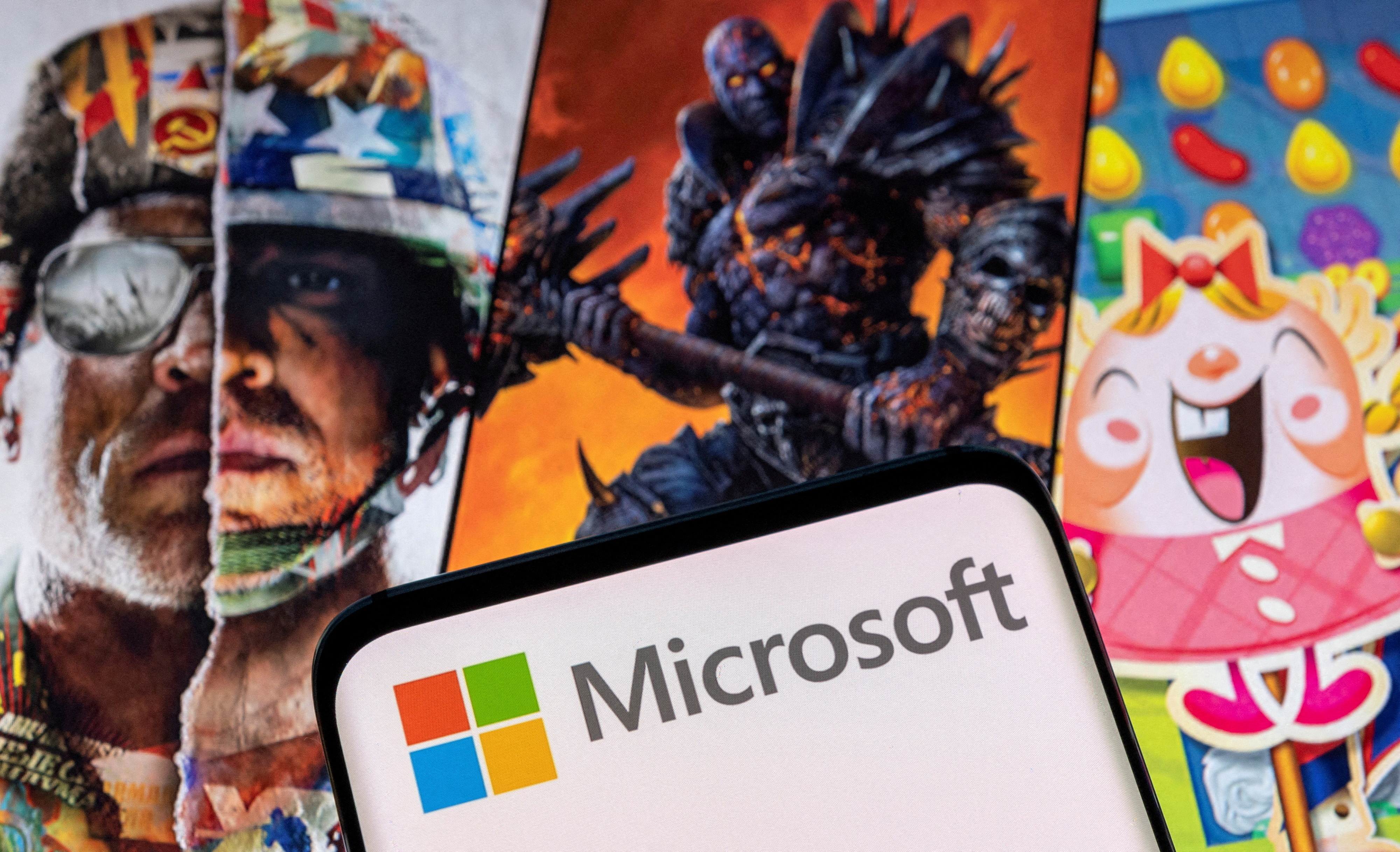(This story has been refiled to fix the dateline)
By Foo Yun Chee and Chavi Mehta
(Reuters) - The U.S. Federal Trade Commission on Thursday asked an appeals court to temporarily stop Microsoft (NASDAQ:MSFT)'s $69 billion acquisition of video game maker Activision Blizzard (NASDAQ:ATVI), hours after a federal judge rejected a similar request.
The deal is facing varying responses around the world from regulators.
WHAT IS THE ACTIVISION DEAL?
Microsoft announced the Activision bid in January last year to boost its firepower in the booming videogaming market, take on leaders Tencent and Sony (NYSE:SONY), and lay the base for its investment in metaverse and digital spaces which are made more lifelike by the use of virtual reality (VR) or augmented reality (AR).
To quell antitrust concerns Microsoft, which owns Xbox, in February said it is ready to offer rivals licensing deals but it would not to sell Activision's lucrative "Call of Duty" franchise.
WHAT DO ANTITRUST REGULATORS SAY?
Britain's antitrust regulator, which blocked the deal in April, took a U-turn after a federal U.S. judge rejected the FTC's request to put the deal on hold.
UK's Competition and Markets Authority said a restructured deal between the two U.S. companies could satisfy its concerns, subject to a new investigation. The CMA extended its deadline to make a decision to Aug. 29.
The U.S. antitrust regulator and Britain's Competition and Markets Authority have varying concerns over the deal.
The FTC says the deal could let Microsoft degrade Activision's game quality or player experience on rival consoles like Nintendo consoles and Sony Group Corp's PlayStation, manipulate pricing or change terms or timing of access to Activision content.
Britain's CMA stopped the deal over anti-competitive concerns around cloud gaming, which it called an "an emerging and exciting market", as it allows users to play on any device.
"Cloud gaming is growing fast with the potential to change gaming ... freeing people from the need to rely on expensive consoles and gaming PCs and giving them more choice over how and where they play games," said CMA panel chair Martin Coleman.
However, the deal was approved by EU antitrust regulators in May, with the European Commission saying the remedies offered by Microsoft addressed their concerns.
WHO ARE THE CRITICS AND FANS OF THE DEAL?
Market leader Sony wants the deal to be blocked. A group of 10 gamers in the United States has filed a private consumer antitrust lawsuit over the deal. But Microsoft in May defeated the gamers' bid to block the deal.
The European Games Development Federation, with more than 2,500 game studios in 22 European countries, and the UNI Global Union back the acquisition.
Nvidia (NASDAQ:NVDA) also said it supported the deal.
WHAT HAS MICROSOFT PRESIDENT SAID AND OFFERED?
Microsoft President Brad Smith said he doesn't think "it is feasible or realistic to think that one game or one slice of this company (Activision) can be carved out and separated from the rest".
Smith criticised Britain after the CMA veto in April, saying it would shake confidence in the UK as a destination for tech, with the company calling the UK regulator an "outlier" for blocking the deal.
Both companies are considering giving up some control of their cloud-gaming business in the UK to appease regulators so they can complete their merger, Bloomberg News reported.
WHAT ARE THE NINTENDO AND NVIDIA LICENSING DEALS?
Both companies have signed 10-year licensing deals that will bring Call of Duty to their gaming platform if the Activision deal is approved.
Spain's Nware also signed a 10-year deal to bring Xbox and Activision Blizzard games to the Spanish cloud-gaming platform.
WILL MICROSOFT'S TACTIC WORK?
Antitrust experts say the FTC faces an uphill battle to convince a judge to block the deal because of the voluntary concessions offered by Microsoft to allay fears it could dominate the gaming market.
Behavioural remedies like licensing deals are rarely sufficient for the CMA, which flexed its muscles in 2021 when it ordered Facebook owner Meta (NASDAQ:META) to sell animated-images platform Giphy after the deal had been completed.
WHO HAS GIVEN THE GREEN LIGHT SO FAR?
Brazil, Chile, Serbia and Saudi Arabia have given unconditional approval.
WHAT NEXT?

After a U.S. judge gave a thumbs-up to the deal, Smith said the focus would be on considering how the transaction could be changed to address the CMA's concerns.
Microsoft said the company would fight the FTC's appeal after the U.S. regulator failed to show the deal would be illegal under antitrust law in a federal court in San Francisco.